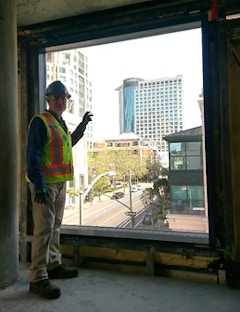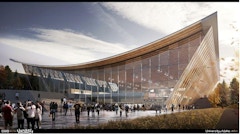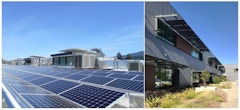
The Carbon Footprint of Aluminum Fenestration
The historical focus on reducing the carbon footprint of a building has recently shifted to include more emphasis on embodied carbon, the carbon

The historical focus on reducing the carbon footprint of a building has recently shifted to include more emphasis on embodied carbon, the carbon

FreMarq engineers and fabricates high performing thermal fenestration products, curtain wall, fixed windows, window walls, vents and sunshades. Our primary focus is to reduce the energy consumption and carbon footprint of commercial buildings by improving the thermal efficiency of its envelope.

There is a growing awareness and interest in understanding the carbon footprint of material manufacturing, opening doors to new opportunities in facade design and manufacturing innovation. There are steps and decisions we can make today to help fight climate change.

Silicone materials have a long history in high performance building projects. Known for durability, they can reduce a building’s carbon footprint by

Welcome to this edition of the SKINS newsletter, which is all about carbon! As guest editor this month, I am representing FTI’s embodied carbon (EC) working group. This issue highlights several important topics relative to embodied and the trade-offs with operational carbon.

Welcome to this edition of the SKINS newsletter, which is all about carbon! As guest editor this month, I am representing FTI’s embodied carbon (EC) working group. This issue highlights several important topics relative to embodied and the trade-offs with operational carbon.

A question for architects and building industry: Can our cities be part of the solution to the challenges facing humanity, or are they intrinsically and inevitably a big part of the problem? To move beyond the latter demands nothing less than a fundamental shift in the way we think about buildings.

To avoid the worst effects of the climate crisis, we urgently need to reduce carbon emissions now. But that's not enough! This original article for SKINS by Drew Shula is a veritable manifesto on the why and how of climate action for all of us.

Don't just wait for the future, build it. NZ23, the world's largest net zero conference, is building a #NetZeroFuture for all. Learn more & register at www.NetZeroConference.com

Since the beginning of the pandemic, building enclosures have received closer scrutiny, with everyone from consumers to building professionals to local and federal government, wanting to know more about their technologies and performance. The BESTfest seminar brings together industry leaders and...

Approximately 80% of our total building stock is from the 20th century. During the last decades, along with an increasing appreciation of modern

Today, building facades are expected to do much more than merely provide shelter, which is driving the need for higher performing envelope solutions.

This case study provides an overview of building hybrid curtain wall system and future opportunities for the use of timber. It will also review the

Life Cycle Assessment (LCA) is a methodology used to quantify the impact of building construction supply chains on the environment in terms of

Environmental and socio-economic benefits of sustainable preservation have become apparent most recently in the restoration of the historic former
The pathway to carbon-neutrality, as urged during the COP 21 in Paris, and the repeated goal for resilient buildings and urban habitats, winds right

The transformation of a dark and inhumane 1970s tilt-up concrete office building into a high performance, light-filled modern workplace was enabled